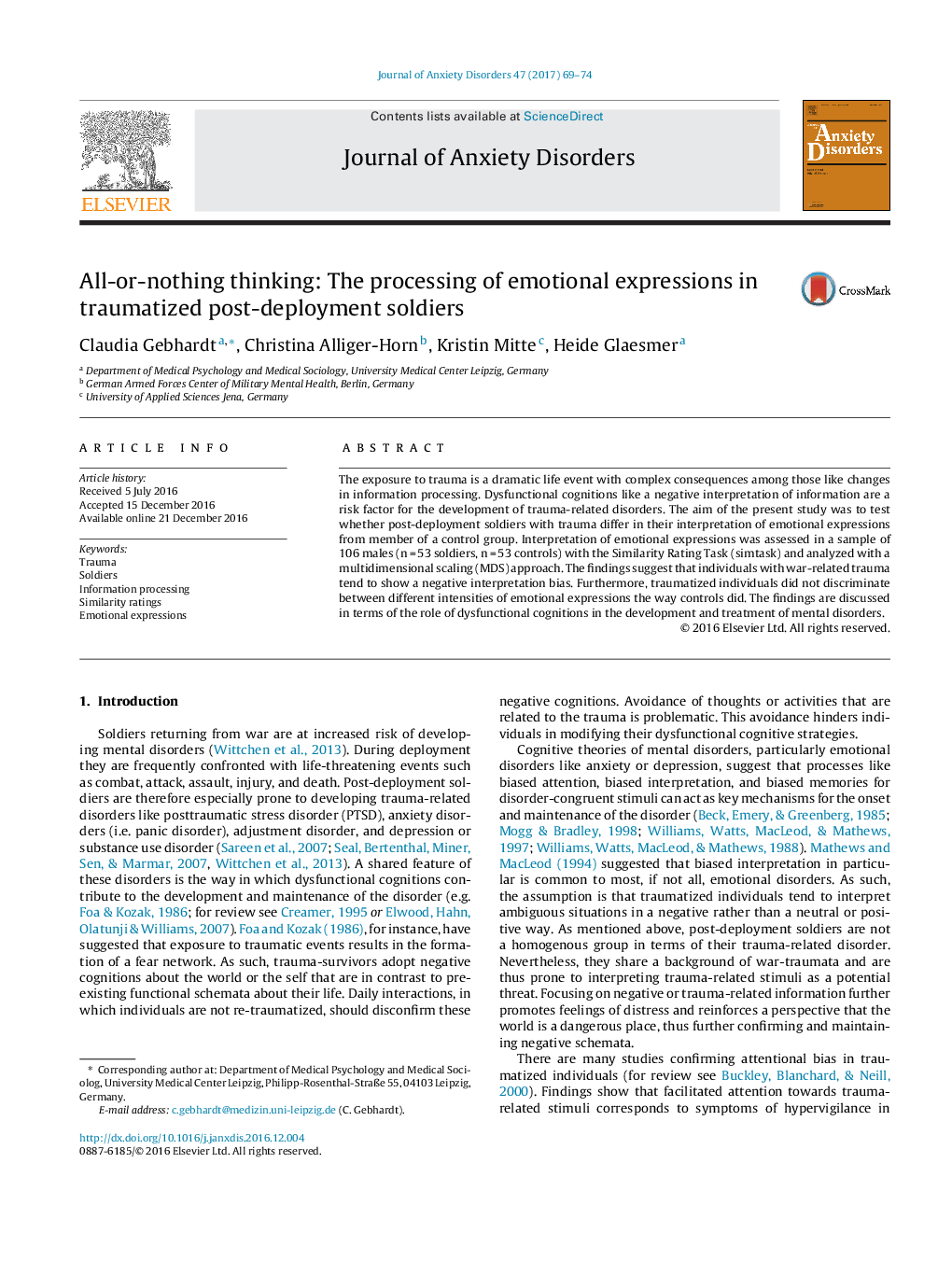| کد مقاله | کد نشریه | سال انتشار | مقاله انگلیسی | نسخه تمام متن |
|---|---|---|---|---|
| 5038871 | 1473031 | 2017 | 6 صفحه PDF | دانلود رایگان |
- The exposure to traumatic events affects the processing of information.
- Soldiers who were exposed to war-traumata showed impaired interpretation of emotional expressions.
- They showed a negative interpretation bias and did not differentiate between different intensities of emotional expressions.
The exposure to trauma is a dramatic life event with complex consequences among those like changes in information processing. Dysfunctional cognitions like a negative interpretation of information are a risk factor for the development of trauma-related disorders. The aim of the present study was to test whether post-deployment soldiers with trauma differ in their interpretation of emotional expressions from member of a control group. Interpretation of emotional expressions was assessed in a sample of 106 males (n = 53 soldiers, n = 53 controls) with the Similarity Rating Task (simtask) and analyzed with a multidimensional scaling (MDS) approach. The findings suggest that individuals with war-related trauma tend to show a negative interpretation bias. Furthermore, traumatized individuals did not discriminate between different intensities of emotional expressions the way controls did. The findings are discussed in terms of the role of dysfunctional cognitions in the development and treatment of mental disorders.
Journal: Journal of Anxiety Disorders - Volume 47, April 2017, Pages 69-74
